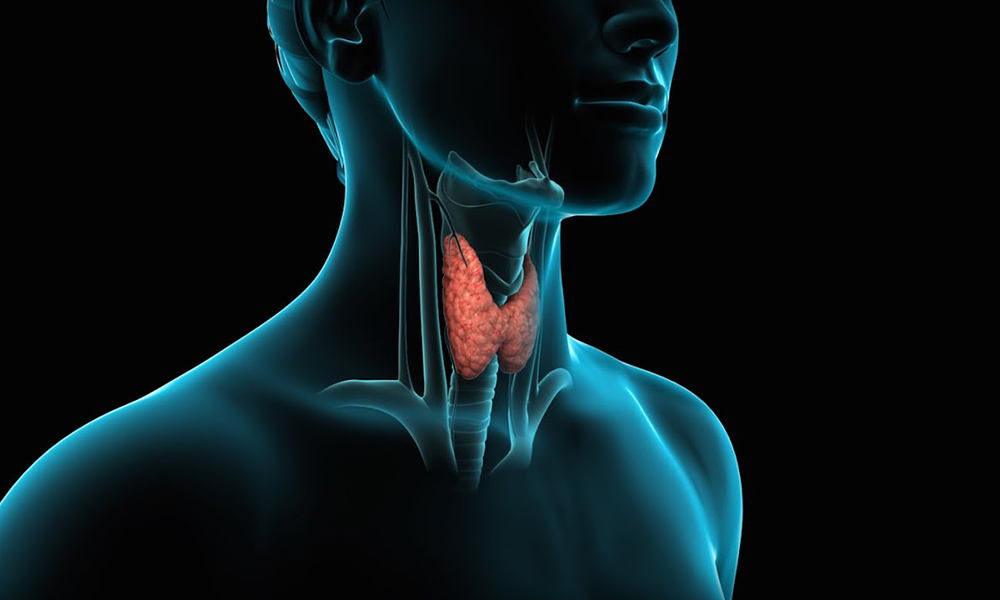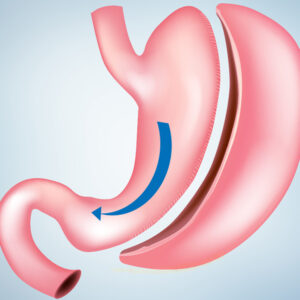
Thyroid Cancer Surgery: Understanding Types of Treatments
The thyroid is a small, butterfly-shaped gland in the neck that plays a crucial role in regulating the body’s metabolism. When the cells of the thyroid begin to grow abnormally, they may form a tumor. This tumor could be malignant in some circumstances. Thyroid cancer is a relatively rare type of cancer, but it is important to diagnose and treat it promptly.
Types of Thyroid Cancer
Papillary, follicular, medullary, and anaplastic thyroid cancers are the four most common subtypes.
Papillary Thyroid Cancer
Papillary thyroid cancer is the most common type of thyroid cancer and accounts for around 80% of all cases. It is usually slow-growing and has a good prognosis, especially if it is detected early.
Follicular Thyroid Cancer
Follicular thyroid cancer is less common than papillary cancer, but it is often more aggressive. It accounts for around 10% of all thyroid cancer cases.
Medullary Thyroid Cancer
Medullary thyroid cancer is a rare type of cancer that arises from the parafollicular cells of the thyroid. It is often associated with a genetic condition known as multiple endocrine neoplasia (MEN) type 2.
Anaplastic Thyroid Cancer
Anaplastic thyroid cancer is the most aggressive type of thyroid cancer and accounts for less than 5% of all cases. It is fast-growing and difficult to treat.
Thyroid Cancer Surgery
The type of surgery will depend on the size and location of the tumor and the type of thyroid cancer.
Total Thyroidectomy
A total thyroidectomy is a surgery that removes the entire thyroid gland. This procedure is usually recommended for larger tumors or when there is a high risk of the cancer spreading.
Lobectomy
A lobectomy is a surgery that removes only one lobe of the thyroid gland. This procedure is usually recommended for smaller tumors or when only one lobe is affected.
Neck Lymph Node Dissection
In some cases, a neck lymph node dissection may be performed along with the thyroidectomy. This procedure involves removing the lymph nodes in the neck to check for the spread of the cancer.
Post-Surgery Care
After a thyroidectomy, it is important to monitor the levels of thyroid hormones in the body. If the entire thyroid gland has been removed, the patient will need to take thyroid hormone replacement therapy for the rest of their life.
Types of Thyroid Cancer Treatments
In addition to surgery, there are several other treatments for thyroid cancer, including radioactive iodine therapy, external beam radiation therapy, and chemotherapy.
Radioactive Iodine Therapy
Radioactive iodine therapy is a treatment that uses a small amount of radioactive iodine to destroy any remaining cancer cells in the body. This treatment is usually recommended for papillary and follicular thyroid cancer.
External Beam Radiation Therapy
External beam radiation therapy is a treatment that uses high-energy X-rays to kill cancer cells. This treatment is usually recommended for anaplastic thyroid cancer.
Chemotherapy
In order to treat cancer, medications are used in chemotherapy. When dealing with anaplastic thyroid carcinoma, this treatment is typically suggested.
Surgeries for Thyroid Cancer
The thyroid gland, shaped like a butterfly, generates hormones that regulate metabolism and is the target of thyroid cancer. Although thyroid cancer is not prevalent, it can have devastating effects if not treated.
Thyroid cancer comes in a number of subtypes, each with its own set of symptoms and therapeutic choices. Papillary thyroid carcinoma and follicular thyroid cancer are the most frequent forms of this disease.
Types of Thyroid Cancer Surgeries
The treatment for thyroid cancer will depend on the type and stage of the cancer. Some of the most common treatments for thyroid cancer include:
Surgery:
A surgical procedure to remove the thyroid gland is one of the most common treatments for thyroid cancer. This may involve a partial thyroidectomy, where only part of the gland is removed, or a total thyroidectomy, where the entire gland is removed
Radioactive iodine therapy:
This type of treatment involves taking a radioactive form of iodine, which helps to kill the remaining cancer cells in the body.
External beam radiation therapy:
This type of treatment uses high-energy beams of radiation to kill cancer cells.
Hormone therapy:
In some cases, hormone therapy may be used to help control the growth of cancer cells.
Post-Surgery Care for Thyroid Cancer Surgery
After a thyroid cancer surgery, the patient will need to have regular check-ups to monitor the levels of thyroid hormones in the body and to check for any signs of recurrence. If the entire thyroid gland was removed, the patient will need to take thyroid hormone replacement therapy for the rest of their life.
FAQs
Here are some frequently asked questions about thyroid cancer surgery:
What is thyroid cancer?
The thyroid gland, shaped like a butterfly, generates hormones that regulate metabolism and is the target of thyroid cancer.
What are the symptoms of thyroid cancer?
The symptoms of thyroid cancer may include a lump in the neck, difficulty swallowing, and hoarseness.
What are the treatment options for thyroid cancer?
The treatment options for thyroid cancer may include surgery, radioactive iodine therapy, external beam radiation therapy, and hormone therapy.
How is thyroid cancer surgery performed?
Thyroid cancer surgery may involve a partial thyroidectomy or a total thyroidectomy, depending on the type and stage of the cancer.
What is the recovery time for thyroid cancer surgery?
The recovery time for thyroid cancer surgery can vary depending on the type of surgery and the individual patient. Most patients can return to normal activities within a few weeks of the surgery.
Are there any risks associated with thyroid cancer surgery?
As with any surgery, there are risks associated with thyroid cancer surgery, including bleeding, infection, and damage to the nerves in the neck. However, these risks are generally rare and can be effectively managed with proper post-operative care.
In conclusion, thyroid cancer is a serious condition that can be effectively treated with surgery. It is important to work with a healthcare provider to determine the best course of action for each individual patient. By understanding the different types of surgeries and treatments available, patients can make informed decisions about their care and take steps to protect their health.













I had tube stomach surgery to my teacher İbrahim. I was very nervous before the surgery. The teacher explains everything in great detail. I didn't have any pain except for the first few hours after the surgery. I feel very good now. Thank you very much to my teacher and his team. I would recommend it to everyone.
Hi Ibrahim Elif beceremed from Aksaray to be weak after many years until they met our teacher today I follow my 3 day agackiran fortunately our teacher friendly operation evimdeyim positive energy once you get to know and I regret it I wish I didn't know what fear is before you panic if I was my suggestion to everyone is our teacher closed his eyes forget about everything gelinkimse Ibrahim's smile makes all the guarantees which I thank very much for everything you people must be happy happy like I've known pain make sure you thank God for each valuable sehirde
Hi, I tried everything for the sake of slimming years and now stomach surgery but I didn't get the result but I was too scared I'd decided to have a teacher Ibrahim afterwards, I found there was around me afterwards, I went to see her surgery in patients with and for the first time I saw a doctor speaks so loud and clear. i had surgery 2 days ago and everything is very nice now and I am standing up, I have started my walks. Thank you very much to my teacher and his team, if you have such an opinion without the slightest hesitation, I would say meet with Ibrahim teacher without wasting time, you will never regret it...
He is the sweetest, most smiling, most affectionate, most sincere and such a successful doctor I have ever seen in my life. I felt not like I was visiting a doctor, but like I was visiting someone from my family. I couldn't even go to the preliminary interview because I was afraid for years, my teacher convinced me in 10 minutes for obesity surgery. I had surgery about a week ago, I'm taking good care of my two children right now, and I've even been able to return to my job, I'm glad that you exist, Ibrahim teacher, I love you very much.